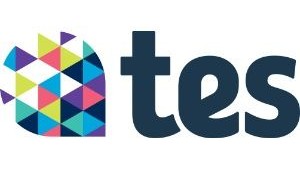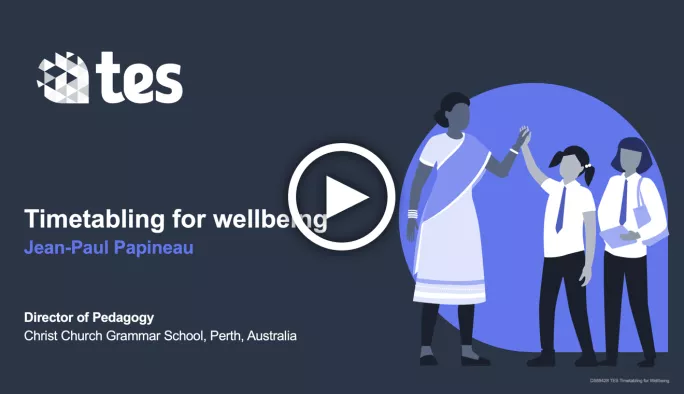During the past 12 months, wellbeing has been elevated from an edu-buzzword to the top of every leaders’ agenda.
Prior to the pandemic, the poor wellbeing of staff had led education into a retention crisis that was threatening to destabilise the profession. Following the outbreak of Covid-19, addressing the decline in mental health of both students and staff has become a priority for schools across the globe.
Watch the webinar: Timetabling for wellbeing
So what can leaders do now to have a meaningful impact on the wellbeing of the entire school community? For one leader, the need to boost mental health has been embedded into one of the systems at the heart of every school’s operation; the timetable.
Jean-Paul Papineau, director of pedagogy at Christ Church Grammar School, in Perth, Western Australia, spoke to Tes as part of a webinar, produced in association with Edval Timetable, and outlined the importance of the timetable. He explained why it can be a vital tool in tackling poor mental health.
“If your timetable is just constructed as hastily as possible, or because we’ve always done it that way, or around a particular class or teacher bottleneck, I would argue that is not necessarily the best for wellbeing,” says Papineau.
“I truly believe that a timetable should have a vision that clearly articulates what it is the timeline structure is trying to achieve.”
Creating a school timetable to protect mental health
Papineau, who uses Edval to build and manage his timetable, explains how other initiatives can fall flat when introduced in isolation.
“A lot of schools bring in other wellbeing influences and extracurricular activities which are great for wellbeing, but all these things seem to fade into the background if you’re not actually giving any visionary thought into the logistical structure,” he says.
“I’m always surprised how often a school timetable, which could be for over 2,000 students, is based around one single class or one single bottleneck. Do we have to structure our timetable this way because we only have two cooking rooms or because this class requires a double period?”
Question everything
Asking why a timetable has been collated in a certain way can be hugely insightful and is beneficial to the wellbeing of students and staff, says Papineau. “Throwing your timetable literally on the table, and conducting an audit into ‘why do we do this’?
“Quite often it’s just the legacy. Quite often it’s just, we’ve always done it that way. The scariest thing for me is if you ask why and nobody knows the answer.”
Instead, Papineau advises that those overseeing timetabling embrace this role and recognise the vital function it plays in school.
“Never forget the privilege and power that comes with a very important role of timetabling. You are effectively telling a set of human beings where to be, when to be there and what exactly to do when they are there. The thousands of people will likely plan their lives around the decisions you make.”
To access a recording of the full webinar click on the link below:
In this free webinar, Papineau goes on to illustrate just how impactful a well-constructed timetable can be when it comes to wellbeing.
While the process doesn’t come without compromises, there are opportunities to significantly improve how both students and staff feel about the day or week ahead.
This webinar was produced in association with Edval Timetable, part of the Tes family



